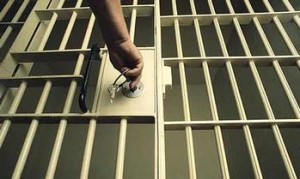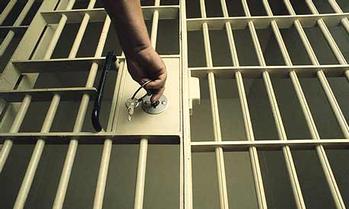 Every week, Georgia locks up juveniles who've committed no crime. A new study contends Georgia risks losing millions of dollars in federal funding if it continues doing so at the current rate.
Every week, Georgia locks up juveniles who've committed no crime. A new study contends Georgia risks losing millions of dollars in federal funding if it continues doing so at the current rate.
They are runaways, truants, curfew violators, underage smokers and drinkers. They're called status offenders because their actions are only an issue due to their status as juveniles; if an adult did the same thing, it wouldn't be a crime.
Now, a report commissioned by the Governor's Office for Children and Families warns that the practice could cost the state about $2 million a year in federal funding, particularly if Congress follows through with plans to tighten guidelines for placing status offenders in secure detention.
The report, authored by Anthony Simones, a criminal justice professor at Dalton State College, and Sandra S. Stone, the school's vice president of academic affairs.
In 1974, Congress prohibited states from holding status offenders behind bars other than for the few hours just before and after a court hearing. An exception, though, allows states to lock up juveniles who violate a valid court order.
Critics say some Georgia courts abuse that exception with a process called "bootstrapping" -- treating violation of a court order, even if it's for a status offense such as running away a second time, as a delinquent act for which a juvenile may be locked up.
Judges often believe detention is the best way to give a child food, shelter or protection from abusive parents or other adults, the report's authors noted. Sometimes it may be deemed the only choice, particularly in outlying areas with few community services for youth.
"However, even well-intentioned violations of the law are still violations," the authors wrote. "[I]t is no longer acceptable to simply conclude that placing status offenders in institutions is the only available option."
Georgia legislators could remedy much of the problem, the authors said, by passing the Child Protection and Public Safety Act -- a proposed 238-page overhaul of Georgia's juvenile code that's been introduced with bipartisan support in both the state House and Senate.
The bill would create a new designation -- Children in Need of Services, or CHINS -- that 16 other states already use to get more appropriate services for status offenders. Florida reports saving $45 million over two years by diverting at-risk youth into more cost-effective, community-based services.
One advocate lobbying for the bill, Kirsten Widner of Emory University's Barton Child Law and Policy Clinic, described CHINS as "a huge improvement in our approach to children who need our help to get back on the right track rather than punishment that might confirm them on the wrong track."
The Governor's Office for Children and Families noted it does not necessarily endorse the report's recommendations.
Georgia remains in compliance with federal guidelines for locking up status offenders, but the reported rate is rising steadily, more than doubling since 2005. It is unclear whether that trend is a product of more incidents or of better data collection.
That compliance could easily change when Congress takes up reauthorization of the Juvenile Justice and Delinquency Prevention Act, possibly later this year, which as currently written would drop the exception for violations of court orders. Georgia should consider doing the same, the report's authors wrote.
"Half or more than half the states are doing just fine without it," said Melissa Sickmund, chief of systems research at the National Center for Juvenile Justice.
The federal law is intended to prevent juveniles who are simply unruly from being held behind bars with those who are delinquent. That's for their own safety and to protect them from exposure to juveniles who've committed more serious offenses.
"The state is putting status offenders in a position to learn from the more criminally sophisticated juvenile delinquents and thus to become delinquents themselves," the authors wrote. "As noted by the National Institutes of Health, 'when young people with delinquent proclivities are brought together, the more sophisticated can instruct the more naive in precisely the behaviors that the intervenor wishes to prevent.' "
The report also calls for Georgia legislators to amend or repeal other statutes that do not conform with federal law:
- Georgia allows locked detention while awaiting (adjudication) for juveniles who previously committed a status offense, without having "any sort of risk assessment or a demonstrated need to institutionalize a child.”
- Georgia allows detention of status offenders for up to 10 days before a judge determines whether they committed an offense, much longer than the 24 hours specified in federal law. They can then be held for up to 30 days before a disposition hearing. "It is entirely possible," the report notes, "that children guilty of nothing more than a status offense could spend over 40 days in secure detention prior to beginning their actual sentence."
- Federal law requires treatment rather than punishment for status offenders, while some judges believe Georgia law allows them to order any disposition for a status offender that a delinquent could get.
